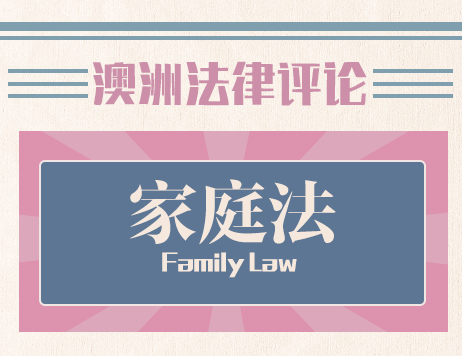离婚诉讼中我要披露哪些财产?披露的要求是什么? 不披露有什么后果吗?| 澳法评
关于此文的更多问题,欢迎联系小编获得更多资讯:Auslawreview01,获得澳洲(昆士兰州布里斯班)华人律师团队的法律建议。
需要披露的财产包括但不限于:
1. 房产
2. 公司股份
3. 退休金
4. 家庭信托
5. 工资收入
6. 车
7. 银行账户
8. 其他资产
2004年《家庭法规则》第十三章对于披露的要求有明确的规定:离婚诉讼双方必须对财产进行全面及真实(Full and Frank)的披露。
1. 关于房产的披露要求是您名下的所有资产,并且包括过去12个月内房产的出售,转让以及赠与。
2. 公司财产包括工资,股份,分红。
3. 退休金包括您名下的所有退休金。
4. 家庭信托需要披露财务报表以及家庭信托合同。
5. 工资收入。您需要提供雇佣合同,工资单以及退税证明。
6. 机动车,您名下持有的所有机动车都需要披露。
7. 银行账户。您需要披露您名下的所有银行账户的对账单。
8. 其他资产。包括您的海外投资等等。

(a) the party’s earnings, including income that is paid or assigned to another party, person or legal entity;
这句话的意思是“一方的收入,包含收入以及付给或者转让给另一方,其他人或者法人’。可能很多人觉得这样还是很难理解,在这里给大家举例解释一下。夫妻双方感情破裂正在诉讼离婚,男方将自己的收入已经付给了女方1万澳元作为补偿(这1万澳元需要披露)。女方将自己的收入5万澳元转给父母作为赡养费(这5万澳元需要披露)。男方将10万澳元转到公司法人名下(这10万澳元也需要披露)。
可见,对于收入的这三种转让方式都需要披露。那有没有可能转钱出去还不需要披露呢?答案是否定的。根据法律规定,任何的出售,转让,包括赠与,都是需要进行全面及真实(Full and Frank)的披露。
1. 拒绝许可使用该信息或文件作为证据;或者
2. 保留或驳回全部或部分案件的诉讼请求;或者
3. 诉讼费用由不披露方承担;或者
4. 因未公开文件或违反承诺而被判藐視法庭罪,可处以罚款或监禁。
What are the disclosure requirements?
Are there any consequences for not disclosure?
The properties that need to be disclosed includes but is not limited to:
1. Real Property
2. Share Portfolio
3. Superannuation
4. Family Trust
5. Income
6. Motor Vehicles
7. Bank account
8. Other assets
However, Chapter 13 of the 2004 Family Law Rules has clear requirements for disclosure: A party to a financial case must make full and frank disclosure of the party’s financial circumstances, including:
2. Company shares and dividends.
3. The superannuation includes all pensions under your name.
4. Family trusts need to disclose financial statements and family trust contracts.
5. Income. You need to provide the employment contract, payroll and taxation returns.
6. Motor vehicles.
7. Bank account. You need to disclose the statements of all bank accounts under your name.
8. Other assets, including your overseas investment and so on.
Through the above regulations, we can see that the family law has very strict disclosure requirements and covers all possible assets. Many readers wonder, if I transfer the property to my family, friends or lend it to other people, can I not disclose these assets?
Here, I would like to share with you the original provisions of the law:
(a) the party’s earnings, including income that is paid or assigned to another party, person or legal entity;
It can be seen that all three types of transfers of income need to be disclosed. Is it possible to transfer money out without disclosure? The answer is no. According to the law, any sale, transfer, including gift, need to be disclosed.
1. must not offer the document, or present evidence of its contents, at a hearing or trial without the other party’s consent or the court’s permission; or
2. the court may stay or dismiss all or part of the party’s case; or
3. may be ordered to pay costs; or
4. may be guilty of contempt for not disclosing the document.
If you want to know more about the detailed regulations on disclosure, welcome to add WeChat: auslawreview02.





















